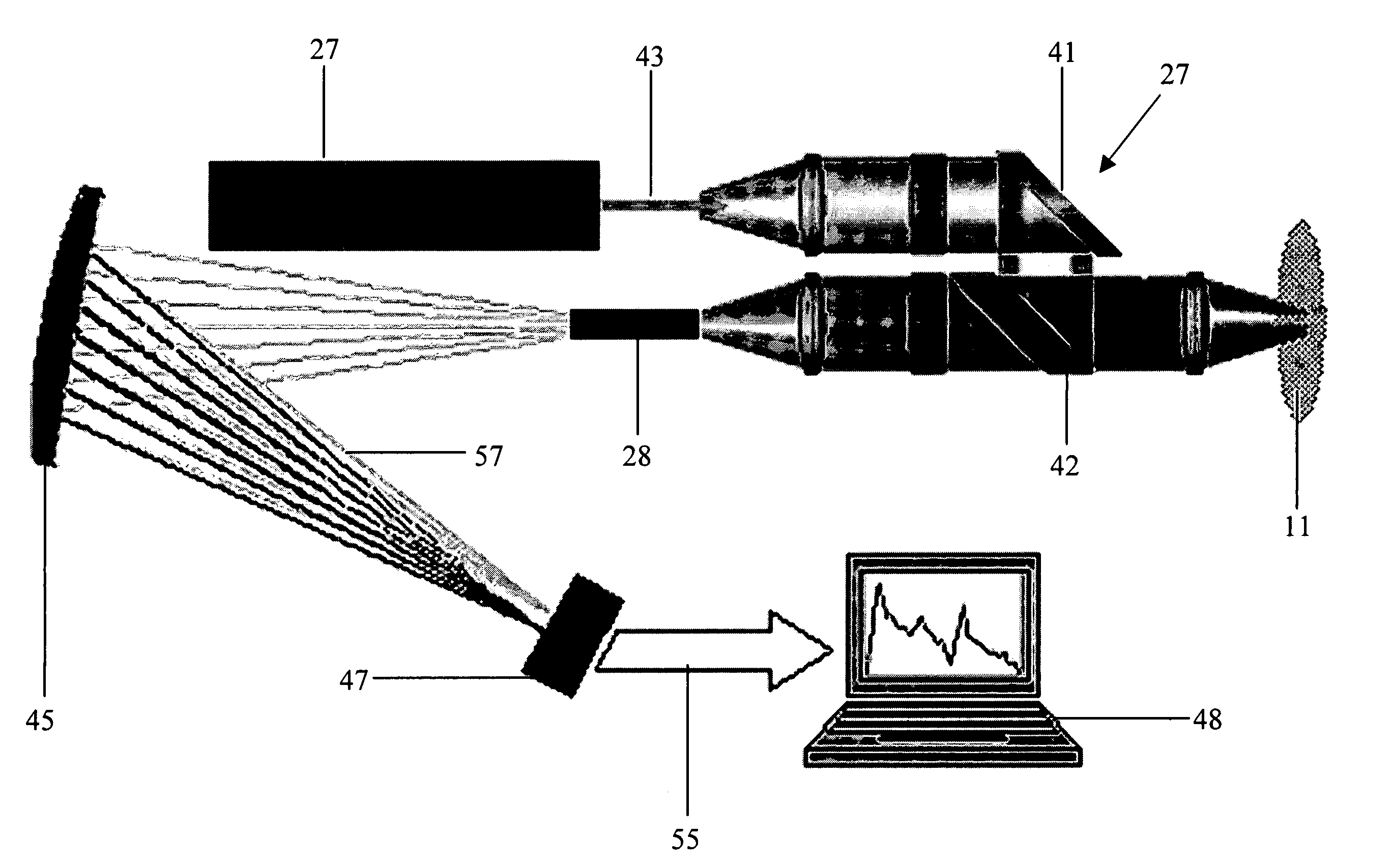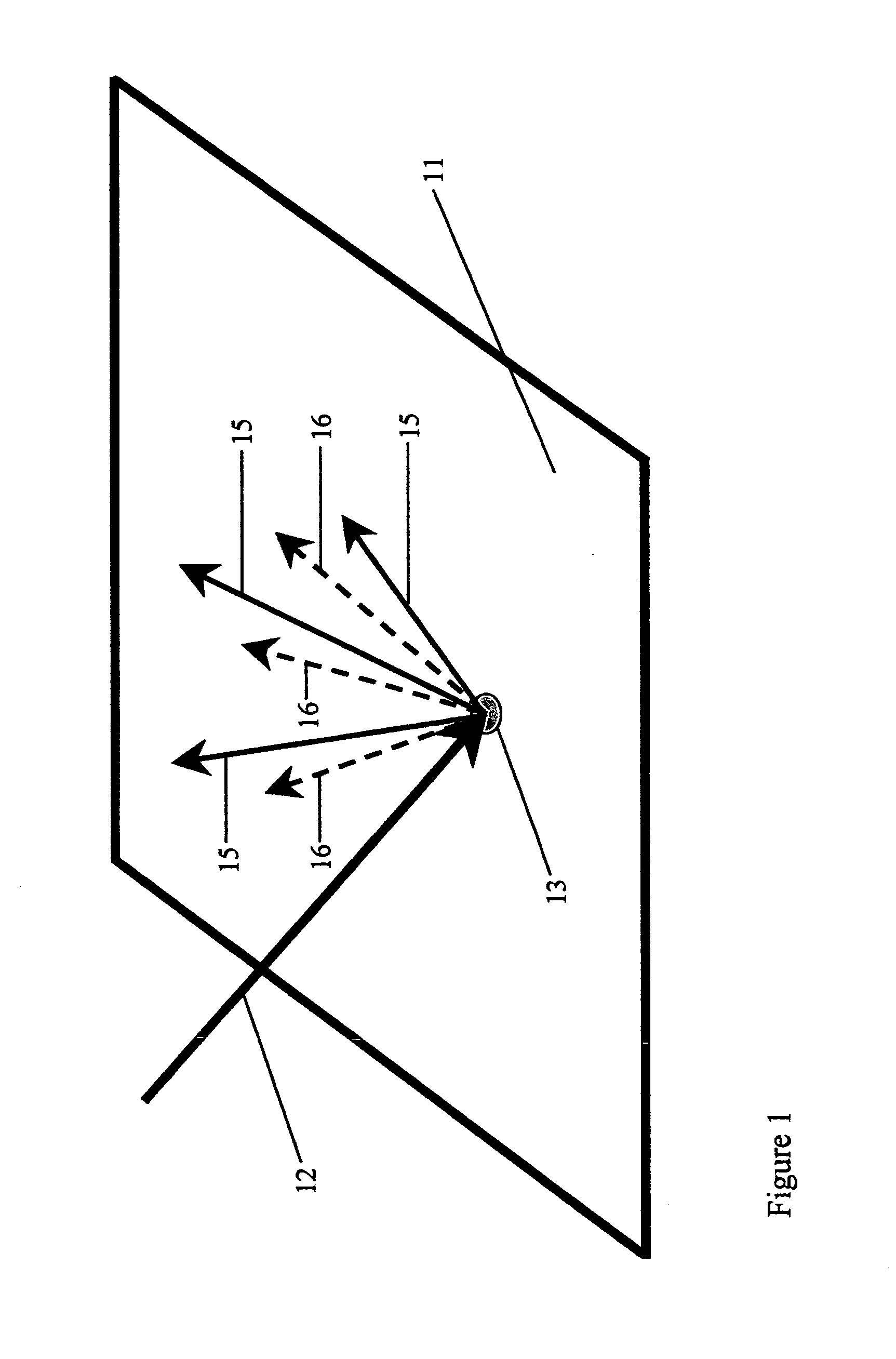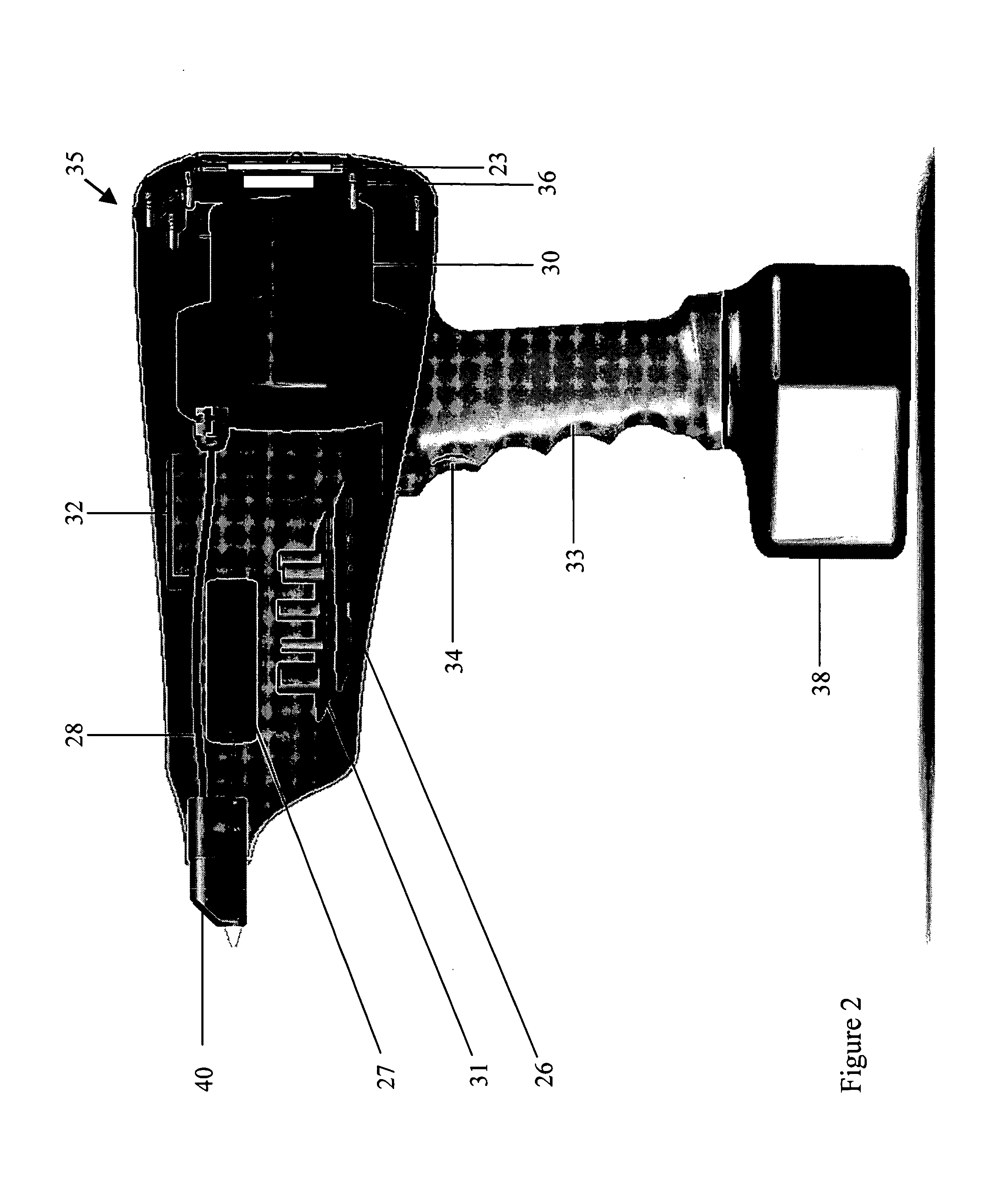Raman instrumentation
a raman and instrumentation technology, applied in the field of instruments, can solve the problems of substantially blind and insensitive detection of ultraviolet light by the detector, and achieve the effects of low power consumption, rugged design, and convenient handling
- Summary
- Abstract
- Description
- Claims
- Application Information
AI Technical Summary
Benefits of technology
Problems solved by technology
Method used
Image
Examples
Embodiment Construction
[0035]Referring now to FIG. 1, there is shown a sample 11 and an incoming incident light beam 12 that is directed to spot 13 on sample 11. Irradiating outward from spot 13 are rays of light 15 and 16. The rays 15 are indicated as continuous lines, and represent in this Figure, scattered light of the same wavelength as the wavelength of the incident light beam 12. This is referred to as Raleigh Scatter. The rays 16, indicated as dashed lines, represent scatter at a different wavelength than the incoming wavelength of the incident light beam 12. The light scattered at different wavelengths 16 is referred to as Raman scatter.
[0036]This figure illustrates the Raman effect in its simplest form. It is employed in all Raman instrumentation. It is also a basis to explain principles incorporated into the instrument of this invention. The sample 11 may comprise a material of any chemical substance. The incoming light beam is reflected back in beams that appear at the same wavelength as the in...
PUM
| Property | Measurement | Unit |
|---|---|---|
| wavelength range | aaaaa | aaaaa |
| wavelengths | aaaaa | aaaaa |
| wavelengths | aaaaa | aaaaa |
Abstract
Description
Claims
Application Information
 Login to View More
Login to View More - R&D
- Intellectual Property
- Life Sciences
- Materials
- Tech Scout
- Unparalleled Data Quality
- Higher Quality Content
- 60% Fewer Hallucinations
Browse by: Latest US Patents, China's latest patents, Technical Efficacy Thesaurus, Application Domain, Technology Topic, Popular Technical Reports.
© 2025 PatSnap. All rights reserved.Legal|Privacy policy|Modern Slavery Act Transparency Statement|Sitemap|About US| Contact US: help@patsnap.com



